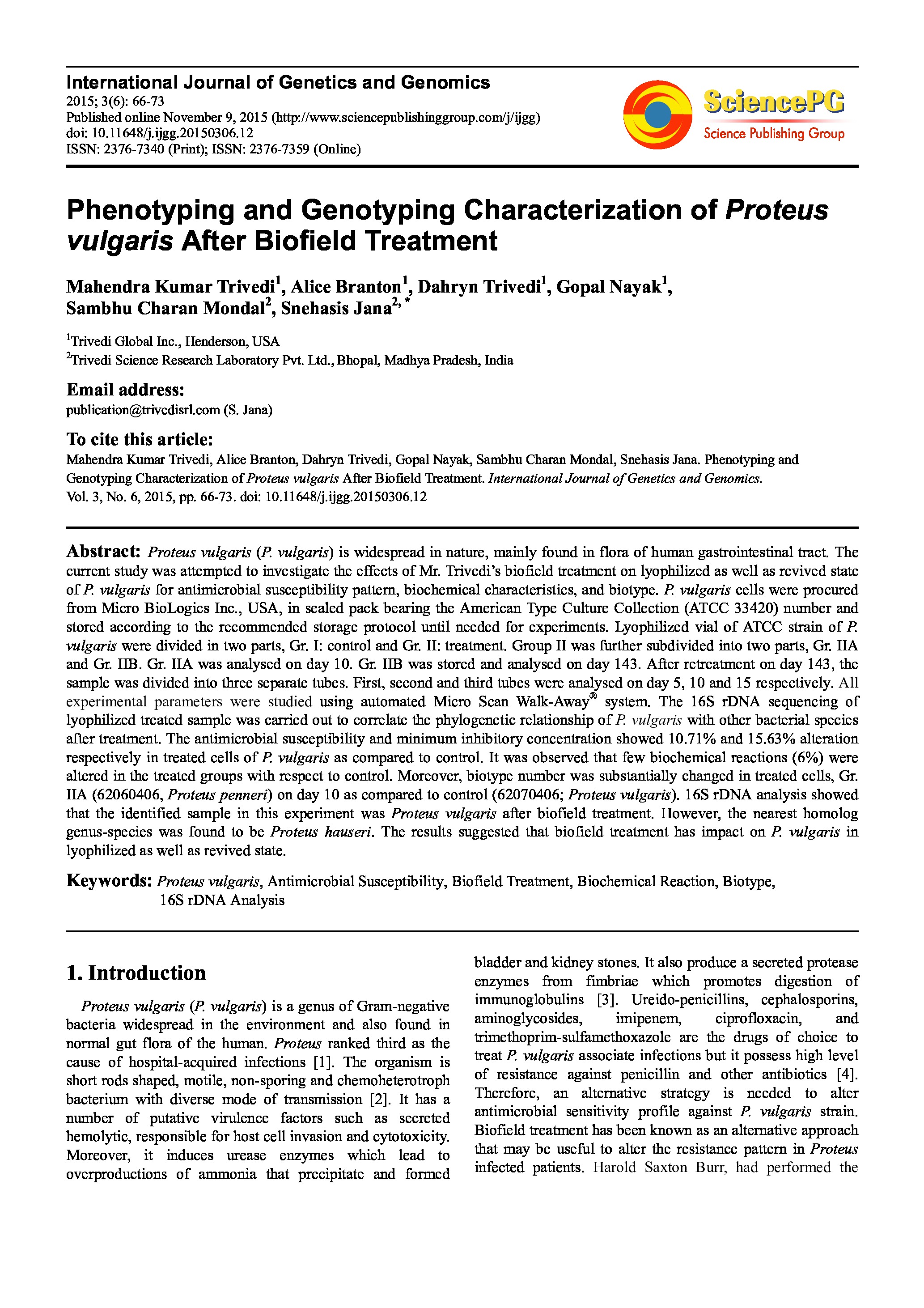Phenotyping and Genotyping Characterization of Proteus vulgaris After Biofield Treatment
Affiliation
Trivedi Global Inc.; Trivedi Science Research Laboratory Pvt. Ltd.
Main category
Natural Sciences (Biology)
Abstract
Proteus vulgaris (P. vulgaris) is widespread in nature, mainly found in flora of human gastrointestinal tract. The current study was attempted to investigate the effects of Mr. Trivedi’s biofield treatment on lyophilized as well as revived state of P. vulgaris for antimicrobial susceptibility pattern, biochemical characteristics, and biotype. P. vulgaris cells were procured from Micro BioLogics Inc., USA, in sealed pack bearing the American Type Culture Collection (ATCC 33420) number and stored according to the recommended storage protocol until needed for experiments. Lyophilized vial of ATCC strain of P. vulgaris were divided in two parts, Gr. I: control and Gr. II: treatment. Group II was further subdivided into two parts, Gr. IIA and Gr. IIB. Gr. IIA was analysed on day 10. Gr. IIB was stored and analysed on day 143. After retreatment on day 143, the sample was divided into three separate tubes. First, second and third tubes were analysed on day 5, 10 and 15 respectively. All experimental parameters were studied using automated Micro Scan Walk-Away® system. The 16S rDNA sequencing of lyophilized treated sample was carried out to correlate the phylogenetic relationship of P. vulgaris with other bacterial species after treatment. The antimicrobial susceptibility and minimum inhibitory concentration showed 10.71% and 15.63% alteration respectively in treated cells of P. vulgaris as compared to control. It was observed that few biochemical reactions (6%) were altered in the treated groups with respect to control. Moreover, biotype number was substantially changed in treated cells, Gr. IIA (62060406, Proteus penneri) on day 10 as compared to control (62070406; Proteus vulgaris). 16S rDNA analysis showed that the identified sample in this experiment was Proteus vulgaris after biofield treatment. However, the nearest homolog genus-species was found to be Proteus hauseri. The results suggested that biofield treatment has impact on P. vulgaris in lyophilized as well as revived state.
DOI
10.18147/smn.2016/paper:468
Do you have problems viewing the pdf-file? Download paper
here
If the paper contains inappropriate content, please
report the paper. You will be redirected to the landing page.
